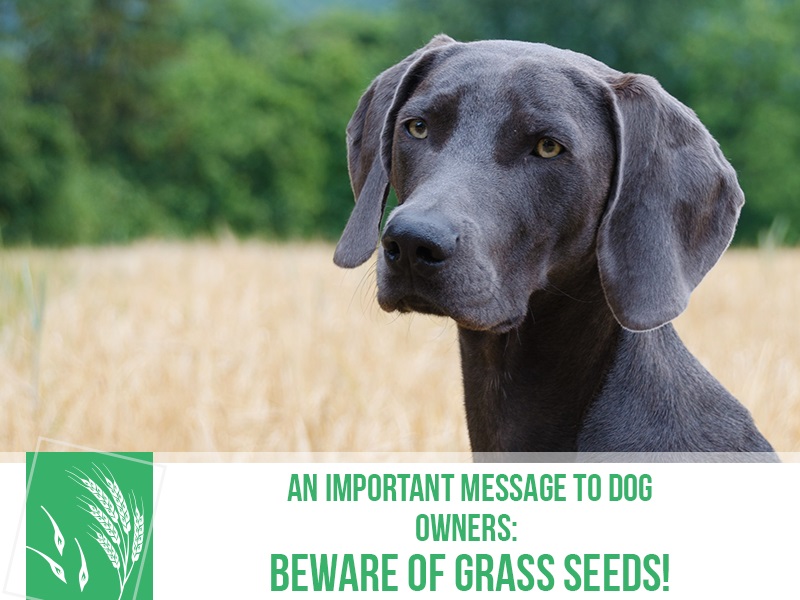
An important message to dog owners: Beware of Grass Seeds!

Grass seeds look fairly harmless don't they? Unfortunately, some of these seeds are a potential hazard for dogs that can lead to expensive and unwanted visits to the vet!
These seeds can get caught in your dog's fur very easily as they are shaped like small darts with thin bristly fibres. This particular shape causes them to keep progressing in one direction, which is usually towards the dog's skin. It won't stop there, as it can break the skin, and as time goes by it can burrow deeper and deeper. As you can imagine this will cause a lot of pain, tissue damage, and eventually it will drag a nasty infection with it.
In most cases grass seeds enter through the dog's paws and ears, although they can get caught anywhere on a dog's fur, and can even find their way up a dog's nose. Dogs with grass seeds lodged on their paws tend to start licking the affected paw excessively, a red lump may appear between their toes, and it's not uncommon for them to become lame.
When grass seeds get caught on our dogs' ears they can progress through the ear canal and can even damage their ear drum. Affected dogs tend to suddenly start shaking their heads after a walk and frantically scratch their ears while looking quite painful and miserable.
The degree of damage caused depends on their location and on how quickly the problem is diagnosed and treated. In some cases the grass seed is very hard to detect and animals in pain need to be sedated in order to investigate the affected area properly.
An undetected grass seed can randomly migrate under the dog's skin, often leaving nothing more than a small hole behind that resembles an insect bite. There have been cases where the seed kept migrating until it actually reached the dogs' abdomen and lungs.
These seeds are commonly found during the summer months so now is really the time to be extra careful. The best way to avoid any grass seed issues is to carefully check your dog's fur after walks, especially their ears and feet. Long haired dogs are more likely to get these seeds caught on their fur so keeping their hair short can help.
If you can, avoid walking your dog in fields with grass seeds and schedule an appointment with your vet as soon as you notice any suspicious signs such as head shaking, ear scratching or paw licking!
Would you like to know more about cats and dogs? Check our Feline and Canine Courses:
Feline courses
Canine courses
Published: 31 Jul 2017
Read the previous article: Feline Tooth Resorption

